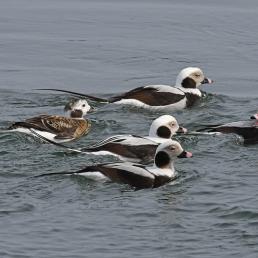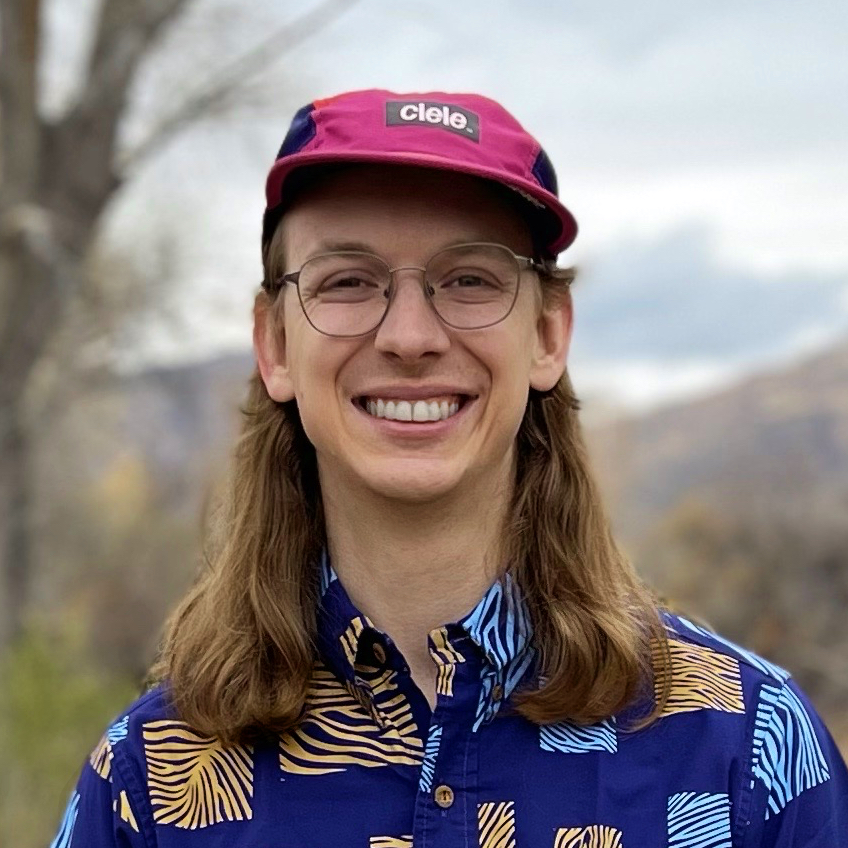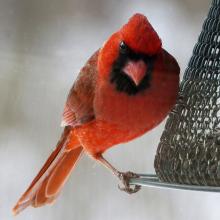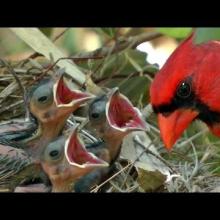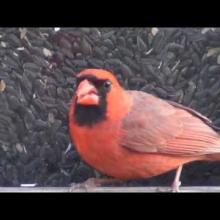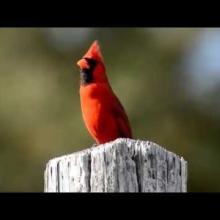

Join BirdNote tomorrow, November 30th!
Illustrator David Sibley and actor H. Jon Benjamin will face off in the bird illustration battle of the century during BirdNote's Year-end Celebration and Auction!
When poet Ada Limón moved to Kentucky with her husband for his work, she was having trouble adjusting to her new home. To connect with the place, she began learning about the local birds and plants. She found comfort in the idea of the nearly omnipresent state bird, the Northern Cardinal. That inspired a poem in which the state bird becomes a metaphor for love.
BirdNote®
Ada Limón and the Birds of Kentucky
Written by Mark Bramhill
Mark Bramhill: This is BirdNote.
For National Poetry Month, we're featuring contemporary writers exploring their relationships with birds. And there is certainly no shortage of poetry featuring birds. But that never scared poet Ada Limón away from writing about them — quite the opposite.
Ada Limón: I don't think that there can be enough bird poems. And, when I was finding myself kind of like, oh no, am I writing too many poems about birds? I just kept thinking, no, maybe that means I need to lean into it a little bit more. Maybe there needs to be another poem about a bird. The rebellious sister inside of me was like, nope, that means you're just gonna bring it on. You're going to get another feeder. You're going to get the suet and we're going to see what happens. Birds all the way.
Mark Bramhill: Ada's loved birds since she was a kid, and through her life they've brought a great sense of comfort. When she moved to Kentucky for her husband's work, she struggled to adjust to her new home.
Ada Limón: One of the ways that I get to know any place and get connected and to feel grounded and, you know, feel like I'm not just swimming out into the universe, not knowing where I am, um, is to name birds and plants and trees. And I was sort of doing that work and just sort of, you know, just naming what kind of tree is that, what— you know, that's this and this.
Mark Bramhill: And in her research on the local plants and animals, Ada looked up the state bird of Kentucky — it's the Northern Cardinal — and the idea of a state bird resonated with her, and inspired this poem:
State Bird
Confession: I did not want to live here,
not among the goldenrod, wild onions,
or the dropseed, not waist high and the barrel-
aged brown corn water, not what the million-
dollar racehorses, nor the tightly wound
round hay bales. Not even in the old tobacco
weigh station we live in, with its heavy metal
safe doors that frame our brick bedroom
like the mouth of a strange beast yawning
to suck us in, each night, Like. air. I denied it,
this new land. But, love I'll concede this:
whatever state you are, I'll be that state’s bird,
the loud, obvious blur of song people point to
when they wonder where it is you've gone.
[Northern Cardinal song, ML 325699101, 0:26-0:29]
Ada Limón: I kept thinking of me being the poet of the state bird, being the one who makes the song, right. So I thought while he's working and he's working on his business, my business will be to make music and to sing and so that's where that poem came from.
Mark Bramhill: In the twelve years since moving to Kentucky, Ada's grown to love the place. And “State Bird” is far from the only poem — or even bird poem — of hers that's helped process big changes or difficult decisions. Like her poem, “Sparrow, What Did You Say?”
Ada Limón: I wrote this poem when my husband and I were trying to have a child and maybe contemplating stopping fertility treatments. Um, and so I was sort of in this moment in my life, where I was like, well, maybe it's time to release this idea. And what would that feel like? And so this poem kind of deals with that duality of different possible futures.
Sparrow, What Did You Say?
A whole day without speaking,
rain, then the sun, then rain again,
a few plants in the ground, newbie
leaves tucked in black soil, and I think
I'm good at this, this being alone
in the world, the watching of things
growing, this older me, the she in
comfortable shoes and no time
for dishes, the she who spent
an hour trying to figure out that the bird
with the three-note descending call
is just a sparrow. What would I
do with the kid here? Teach her
to plant, watch her like I do
the lettuce leaves, tenderly, place
her palms in the earth, part her
black hair like planting a seed? Or
would I selfishly demand this day
back, a full untethered day trying
to figure out what bird was calling
to me and why.
Figuring out it was a sparrow was just hilarious to me because I kept being like, "what is that beautiful sound?" and it was just a sparrow. not that a sparrow should be just a sparrow, but, you know. And it was that kind of, wow, I just probably spent an hour doing that and that's not something you could do if you had a toddler. perhaps, if you had a child at all. I don't know. I'm happily child-free and it was the right decision for us. But I do think that poem, you know, was, was me letting go in some ways, of that idea of maybe having a kid in my life and also the idea of holding on to what it is to be a child-free person and to have a sort of freedom as an artist to play in the world. And I think it was an afternoon when, of course, I thought the work I was doing was trying to identify a bird, but the work I was doing was deeply deciding on whether or not I wanted to be a mother.
Mark Bramhill: Ada Limón is the author of six books of poetry. And she's a fellow podcaster, hosting the critically-acclaimed poetry podcast, The Slowdown, where she shares a poem every weekday. If you want more of Ada and her poetry, check out the links on our website, BirdNote.org. You'll also find more wonderful poetry about birds there. For BirdNote, I'm Mark Bramhill.
Ada Limón: Oh. And I'll tell you one other story, You know, poetry books don't make a ton of money. You know, if, if anyone asks you about why we get into poetry, um, we don't do it for the money. Um, but I had sold The Carrying not for a ton of money, but more than I had ever sold a book for. When I got my car — it was used, of course — but I bought my car with this money and I was like, oh my God, my poems allowed me to buy this used car. And I was so excited about it. And when I got to the Kentucky DMV to get my license plate, they had an option of one with a cardinal on it and that would give money to support the birds. So of course I got the one with the cardinal on it and I got my car home and — we always name our cars — And my husband said, what are you going to name your car? And I said, I think my car is called State Bird. And so my car has the cardinal on it and its name is State Bird.
###
Senior Producer: John Kessler
Content Director: Allison Wilson
Managing Producer: Conor Gearin
Producer: Mark Bramhill
Bird sounds provided by The Macaulay Library of Natural Sounds at the Cornell Lab of Ornithology, Ithaca, New York. Northern Cardinal ML325699101 recorded by E. Wells, and White-throated Sparrow ML 136579 recorded by S. O’Brien.
BirdNote’s theme was composed and played by Nancy Rumbel and John Kessler.
© 2022 BirdNote April 2022
Narrator: Mark Bramhill
ID# poetry-01-2022-04-05 poetry-01
